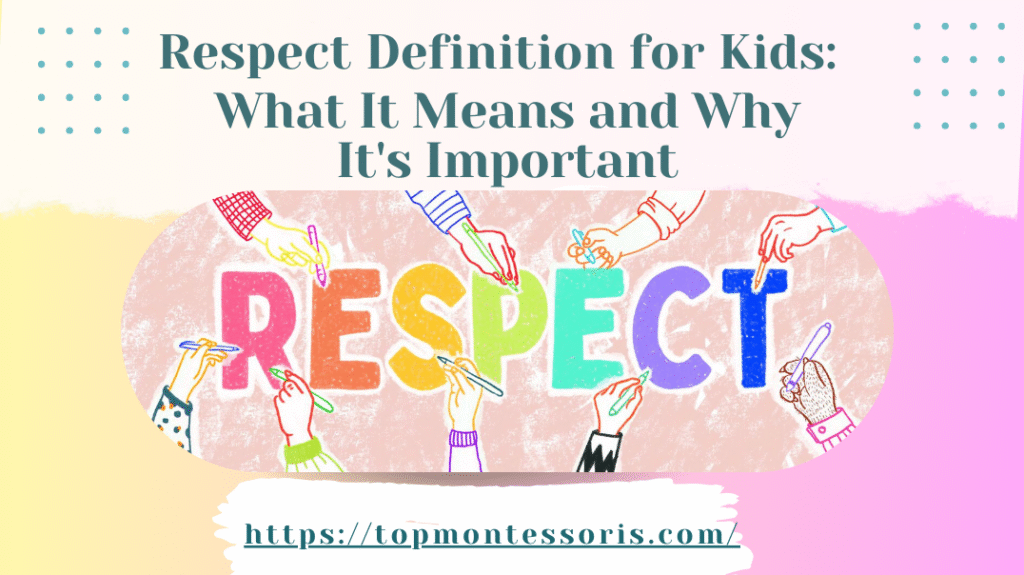What does it truly mean to respect a child? Is it about letting them do whatever they want? Or is it about treating them as capable individuals? How do educators and parents show genuine respect to young children in early education settings?
Respect definition for kids means recognizing their thoughts, feelings, and individuality as valid and worthy. When adults respect children, it builds trust, boosts self-esteem, and encourages independence. Respect nurtures emotional security and cognitive development, helping kids become confident learners. It’s not about control—it’s about connection and mutual understanding.
Respecting children is the foundation of every great early childhood environment. In this article, I’ll share what respecting kids looks like in practice, why it matters more than ever, and how educators and parents can create respectful, empowering learning spaces.

Çocuklar İçin Saygı Tanımı Nedir?
Respect for kids is about recognizing their value as individuals and treating them accordingly. It goes beyond being polite and means honoring their thoughts, feelings, and ideas. It also involves identifying the unique perspectives they bring to the world, even though they may not have the same experience or knowledge as adults.
Çocukların İhtiyaçlarını ve Duygularını Anlamak
Özünde, çocuklara saygı onların ihtiyaçlarını ve duygularını dinlemek ve dikkate almakla ilgilidir. Çocuklar hala duygusal ve bilişsel olarak gelişmektedir ve duyguları yetişkinlerinki kadar karmaşık olabilir. Çocuklara saygı duymak, duygusal durumlarını kabul etmek ve endişelerini göz ardı etmeden kendilerini ifade etmeleri için onlara alan vermek anlamına gelir.
For example, respect means acknowledging their feelings and offering support when a child expresses frustration instead of brushing it off. By genuinely listening to what kids say, we teach them that their feelings and opinions are essential.
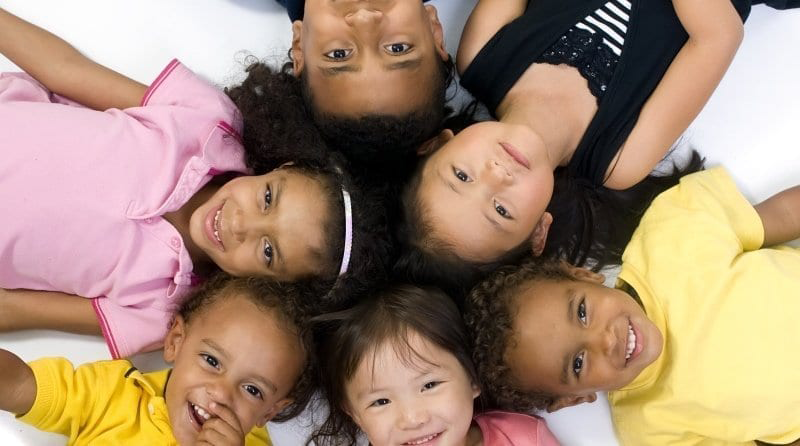
Özerkliklerini Onaylamak
Respect for kids also includes recognizing their autonomy as they grow. Kids begin to assert their independence from a young age, and showing respect means allowing them to make their own choices. It could be as simple as allowing them to choose what clothes to wear or encouraging them to express their preferences about how they spend their time.
Çocuklara saygı banaOnlara karar almaları için alan tanımak, baskıcı olmadan rehberlik sunmak ve kendi başlarına düşünme yeteneklerini kabul etmek. Bu onlara hayatları üzerinde kontrol sahibi olduklarını gösterir ve özgüven oluşturur.
Saygısız Davranış ve Eylemlerden Kaçınmak
Children learn through modeling. If we respond to kids disrespectfully—yelling, belittling, or ignoring their needs—it can have long-term adverse effects on their emotional and mental health. The definition of respect for kids emphasizes treating them with the same level of kindness and consideration we would expect in return.
Saygısız davranışlar çocuklara değersiz, kafası karışık veya kendilerini ifade etmekten korkmuş hissetmeyi öğretebilir. Saygılı davranışı modelleyerek, saygılı muamelenin nasıl göründüğünü içselleştirmelerine ve etkileşimlerinde kullanmalarına yardımcı olabiliriz.

Çocuklara Saygı Neden Önemlidir?
Respect for kids is not just about treating them politely or in a manner that avoids conflict—it’s about valuing them as individuals with their thoughts, feelings, and needs. By showing respect for kids, we foster a healthy environment where they feel seen, heard, and appreciated. This deep respect is foundational for their emotional well-being and social development.
Öz Değeri ve Öz Güveni Artırmak
When children feel respected, they are likelier to develop a strong sense of self-worth. Respect for kids is tied directly to their self-esteem. Respect shows children that their opinions matter and their feelings are valid. This boosts their confidence and encourages them to express themselves freely, knowing they will be listened to and valued.
Çocuklara sürekli saygı gösterilirse, bu davranışı içselleştirmeye başlarlar ve kendilerine aynı nezaket ve anlayışla davranırlar. Çocuklar için öz saygı, zorluklara yaklaşmak, ilişkiler kurmak ve hayattaki aksiliklerle başa çıkmak için olmazsa olmaz bir temel haline gelir.

Güvenli ve Besleyici Bir Ortam Yaratmak
Çocuklara saygı duyduğumuzda, bir keşfetmeleri için güvenli bir alan, küçümsenme veya görmezden gelinme korkusu olmadan öğrenin ve büyüyün. Çocuklar saygı duyulan ve onurlu bir şekilde muamele gören ortamlarda gelişirler. Çocuklara saygı, güven ve açıklığa yol açar, düşüncelerini ifade etmelerine, soru sormalarına ve hatalarından ders çıkarmalarına olanak tanır.
Bu tür bir ortam duygusal istikrarı besler. Saygı duyulan çocukların olumlu davranışlarda bulunma, gerektiğinde yardım arama ve duygusal dayanıklılık geliştirme olasılığı daha yüksektir.

Bağımsızlığı ve Sorumluluğu Teşvik Etmek
Respecting kids means acknowledging their growing independence and empowering them to make decisions. When we respect kids, we show them that we trust their abilities, whether in schoolwork, chores, or personal goals. Respect is allowing kids to take responsibility for their actions and make choices within reasonable boundaries.
Özerkliklerine duydukları bu saygı, çocukları inisiyatif almaya ve sorunları bağımsız bir şekilde çözmeyi öğrenmeye teşvik eder. Seçimlerinin önemli olduğunu anlamaya başlarlar ve bu öz farkındalık, büyüdükçe sorumlu davranışları teşvik eder.

Ways Teachers and Parents Can Show Respect to Children Daily
Respect for kids can be seen in many ways. It can be seen when children offer a compliment, say “thank you” without being prompted, or apologize when they’ve done something wrong. Showing respect to kids can also include being patient, refraining from interrupting others when they speak, and offering help when needed.
Respect is demonstrated when children listen to their teachers, follow classroom rules, and work well with classmates. Children who show respect in school understand that their actions affect the learning environment and the feelings of their peers. Respectful activities for children in a school setting may involve group projects, sharing ideas, and collaborating respectfully with others.
Etkin Dinleme
Çocuklar için saygı tanımı, onları dikkatle dinleme becerisini içerir. Bu, göz teması kurmak, sözlerini kabul etmek ve düşünceli bir şekilde yanıt vermek anlamına gelir. Etkin bir şekilde dinlemek, çocuklara düşüncelerinin ve duygularının dikkate değer olduğunu öğretir ve bu da duygusal gelişimleri için çok önemlidir.
Encouraging respectful activity for kids, such as sitting down and truly listening when they share something, fosters deeper connections and reassures them that they are valued. When kids feel heard, they are more likely to express themselves openly and develop confidence in their voices.

İfade ve İletişimi Teşvik Etmek
Respecting kids involves encouraging them to communicate openly. We should allow them to share their emotions, whether upset or excited. Quotes for kids about respect often highlight the importance of speaking with kindness and honesty. We can reinforce this by encouraging our children to express their feelings healthily and constructively.
Çocuklara iletişim kurmaları için bir alan sağlayarak, onlara duygularını yönetmeleri, sosyal etkileşimlerde gezinmeleri ve duygusal zeka geliştirmeleri için araçlar veriyoruz. Görüşlerini dile getirmelerine izin vermek, onlara fikirlerinin önemli olduğunu ve aile veya okul kararlarında girdilerinin değerli olduğunu gösterir.

Saygıyla Net Sınırlar Belirlemek
Respect also means understanding boundaries. For children, this might look like respecting their need for privacy, setting limits on behavior, and teaching them how to assert their boundaries with others. By teaching them about boundaries and respecting their need for space, we help them navigate relationships healthily.
Respectful activities for kids, such as role-playing or practicing kişisel alan, can reinforce these concepts in a fun and engaging way. These activities help children understand that respecting boundaries is a two-way street: they must respect others’ boundaries, but their boundaries should also be respected.

Receive a free catalog and custom layout to help you design your ideal classroom easily.
Bireyselliklerini Tanımak
Respect for kids means acknowledging and valuing their individuality. Every child is unique, and they should be treated as such. By recognizing their strengths and challenges, we see them as individuals worthy of respect, not just as children to be managed. Allowing children to explore their interests, hobbies, and passions fosters a sense of self-respect and independence.
Büyüme ve Gelişimlerini Desteklemek
Respecting kids means supporting their personal growth. This might involve encouraging them to try new things, fail and try again, and make mistakes without fear of judgment. Respect quotes for kids often encourage resilience and learning from setbacks. When children know they are respected regardless of their successes or failures, they become more motivated to continue striving and learning.
Çocuklara Başkalarına Kendilerinin Davranılmasını İstedikleri Gibi Davranmayı Öğretmek
While the Golden Rule—“Treat others the way you want to be treated”—is a standard teaching when discussing respect, we must remember that respecting children means adhering to this principle when interacting with them. Showing respect to children involves treating them with the same care and consideration we expect for ourselves.
Duygu ve Görüşlerine Saygı Duymak
Çocuklara saygı duyduğumuzda, duygularını ve fikirlerini kabul etmiş oluruz. Çoğu zaman, yetişkinler çocukların düşüncelerini önemsiz veya çocukça olarak görmezden gelirler, ancak duygularının yetişkinlerinkiler kadar geçerli olduğunu hatırlamak çok önemlidir. Çocukların duygularına saygı duyduğumuzda, onlara duygularının önemli olduğunu gösteririz, bu da duygusal dayanıklılıklarını geliştirmelerine yardımcı olur. Örneğin, bir çocuk hayal kırıklığı veya üzüntü ifade ettiğinde, onları önemsizleştirmeden dikkatle dinlemek ve duygularını doğrulamak, bir güven ve öz değer duygusu geliştirmeye yardımcı olur.

Çocukların Katkılarına Değer Vererek Onları Güçlendirmek
Respecting children means involving them in decision-making processes where possible. This sense of autonomy shows respect for their individuality, whether it’s letting them choose their outfits, allowing them to have a say in family plans, or asking for their opinions on matters that affect them. Giving children a voice demonstrates that their ideas and choices are valued, helping them build confidence in their decision-making ability.
Haklarına ve İhtiyaçlarına Saygı Göstermenin Modellenmesi
Çocuklara saygı göstermek, aynı zamanda temel haklarını tanımak ve onurlandırmak anlamına gelir. Çocukların mahremiyet, duyulma, hata yapma ve onurlu muamele görme hakları vardır. Bu haklara saygı göstererek, çocukların kendilerini güvende ve değerli hissettikleri bir ortam yaratmaya yardımcı oluyoruz. Yetişkinler çocuk haklarına sürekli saygı gösterdiğinde, sağlıklı duygusal gelişim için gerekli olan bir güvenlik ve güven duygusu geliştirirler.

Receive a free catalog and custom layout to help you design your ideal classroom easily.
Okulda Çocuklara Saygı Nedir?
Respect for children in school is essential for creating a positive and productive learning environment. In a school setting, respect goes beyond treating children with courtesy—it involves understanding their academic, emotional, and social needs while nurturing a space where they feel safe, valued, and supported.
Öğrenme Stillerine ve Hızlarına Saygı Gösterin
Respect for kids means recognizing that each child learns differently in the classroom. Some children may excel in specific subjects, while others may need more time and support. A respectful school environment acknowledges these differences and adapts teaching methods to accommodate various learning styles. By doing so, educators show that they value each student’s unique approach to learning. Whether a child is a visual, hands-on, or auditory learner, the respectful approach ensures they receive the tools and methods they need to succeed at their own pace.
Respect also encourages children to ask questions, make mistakes, and learn through their experiences. If a student struggles with a concept, being patient and offering extra help shows that their efforts are respected and that learning is a journey, not just a destination.

Kapsayıcılığı Teşvik Etmek ve Çeşitliliğe Değer Vermek
Okuldaki çocuklara saygı, her çocuğun geçmişi veya yetenekleri ne olursa olsun hoş karşılandığını hissettiği kapsayıcı bir ortam yaratmak anlamına da gelir. Bu, kültürel, sosyal veya akademik olsun çeşitliliğe değer vermeyi ve öğrencilere farklılıklara saygı duymanın ve onları kutlamanın önemini öğretmeyi içerir. Saygılı bir okul kültürü, çocuklara herkesi benzersiz kılan şeyleri takdir etmeyi öğretirken herkesin nezaket ve adaletle muamele görmeyi hak ettiğini vurgular.
Creating inclusive opportunities for students—whether through group projects, discussions, or activities highlighting different perspectives—ensures that no one feels left out. Respecting a child in school is about fostering a sense of belonging and helping them understand the value of empathy within their school community and beyond.
Olumlu Sosyal Davranışı ve Kendini İfade Etmeyi Teşvik Etmek
Respect for kids in school also involves supporting their social development. School is a place for academic learning and a crucial space where children learn to interact with their peers. Respecting kids in this setting means encouraging positive social behavior, such as sharing, taking turns, and resolving conflicts respectfully. It’s about creating an environment where children can freely express themselves through art, sports, group discussions, or extracurricular activities without fear of judgment.
Çocukların kendilerini güvenli ve saygılı bir alanda ifade etmelerine izin vermek, özgüvenlerini teşvik eder ve sosyal becerilerini geliştirmelerine yardımcı olur. İster sınıfta bir fikir paylaşsınlar ister ilgi alanlarını sınıf arkadaşlarıyla tartışsınlar, seslerine saygı duymak, düşüncelerinin ve görüşlerinin değerine olan inançlarını güçlendirir.
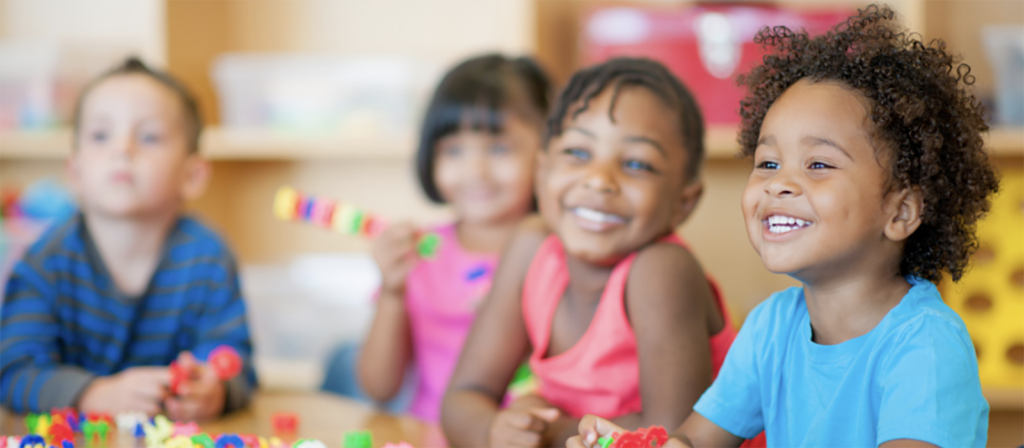
As children grow, they benefit immensely from environments that respect them and consider their physical needs, such as comfort, accessibility, and engagement. This applies not only at home and school but also in the places where they spend a significant amount of their time, such as their learning environments.
Saygılı ve çocuk dostu bir ortam sağlamanın bir yolu, onların ihtiyaçlarını karşılayan doğru araç ve mobilyaları sağlamaktır. EN İYİ Montessoris, a leading manufacturer of preschool furniture, understands the importance of creating environments where children can feel safe, engaged, and respected. Whether in the classroom or at home, having well-designed furniture that aligns with the needs of young children plays a vital role in fostering respect for their physical space and their emotional and cognitive growth. Using high-quality, ergonomic, and aesthetically pleasing furniture, we help create an environment where children can thrive and feel genuinely valued.

Receive a free catalog and custom layout to help you design your ideal classroom easily.
Challenges Adults Face When Practicing Respect with Children
When discussing Respect Definition for Kids, we rarely pause to ask a deeper question: Are we, as adults, consistently practicing respect toward children? And more importantly, what makes it so difficult?
One of the biggest challenges is that many adults were not raised in environments where their voices were heard or respected as children. For generations, parenting and education in many cultures followed an authoritarian model: children should be “seen and not heard.” Respect flowed one way—from child to adult—but not back. So when today’s educators or parents are asked to shift that mindset and truly respect children, they may feel confused or even resistant.
The Control Reflex
Another challenge is called the “control reflex.” Adults, especially in educational environments, are often under pressure to manage time, behavior, and outcomes. In this setting, it can feel risky to allow a child the space to think independently, move freely, or even disagree respectfully. Many adults unconsciously equate control with effectiveness. But practicing respect for kids sometimes means allowing things to take longer, following the child’s natural rhythm, or accepting their emotional expressions without immediate correction.
Cultural Expectations and Social Pressure
Cultural expectations also play a role. In many societies, there is an unspoken rule that “obedient” children reflect “good” parenting or teaching. So, when a child speaks up, says “no,” or even questions an instruction, adults may feel embarrassed or judged. This creates a paradox: we want to raise confident, expressive children, but struggle to validate their voices in public or when others are watching. True respect definition for kids requires us to put the child’s development ahead of our public image.

Emotional Fatigue and Burnout
Let’s be honest—respecting children also requires a high level of emotional regulation from adults. When teachers or parents are tired, overwhelmed, or unsupported, responding with patience, empathy, and presence becomes difficult. For example, respecting a child during a tantrum takes inner calm and maturity. But if the adult is operating on low energy or stress, they may default to yelling, threatening, or dismissing—a direct violation of respectful interaction. In this way, adult well-being is directly tied to the consistency of respect we can offer kids. That’s why teacher training and mental health support must go hand-in-hand with respectful education.
Misunderstanding the Word “Respect”
There’s also a semantic issue—many adults misunderstand what the word “respect” means for children. They may assume that “respecting children” means permissiveness or a lack of boundaries. In truth, the Respect Definition for Kids includes structure, clear expectations, and guidance—all rooted in empathy and collaboration, not fear or coercion. For example, a teacher can respectfully say: “I see you’re upset. We can talk more after you’ve had some quiet time,” rather than “Be quiet or you’ll lose your toy.” The first validates the child’s emotion and provides structure. The second uses threat and control, not respect.
Institutional Constraints
In early education centers, especially larger ones, institutional constraints can interfere with respectful practices. Schedules, ratios, assessment demands, and classroom management expectations often override child-led approaches. Teachers may know what’s respectful but feel they “don’t have time” to implement it. This disconnect between theory and practice is frustrating and can create burnout.
That’s why at EN İYİ Montessoris, we don’t just focus on providing Montessori and Reggio-inspired furniture—we design environments that enable respectful practices. Our classroom setups, child-sized furniture, and open-ended materials are crafted to support autonomy and dignity. Respect Definition for Kids starts with an environment that reflects those values.

Receive a free catalog and custom layout to help you design your ideal classroom easily.
How Respect Shapes a Child’s Identity and Long-Term Development
When we talk about Respect Definition for Kids, we’re not just discussing manners or rules—we are shaping something far more powerful: a child’s core identity. The way adults treat children daily forms the foundation of how they view themselves and their place in the world. Respect, or the lack of it, becomes internalized.
A child who is consistently respected begins to believe, “I matter. My thoughts have value. I am capable.” This becomes the child’s inner voice—their self-concept. On the other hand, if a child is constantly dismissed, ignored, interrupted, or controlled harshly, they internalize a very different message: “I must obey to be loved. My opinions don’t count. I am small or wrong.”
In early childhood education, identity formation begins before children even know how to spell the word ‘respect’. That’s why it’s crucial that we, as adults, understand and apply a true Respect Definition for Kids—one that nurtures their emotional, social, and intellectual growth simultaneously.
The Role of Respect in Self-Worth and Confidence
Children form their self-worth based on how the important adults in their lives respond to them. When a teacher listens attentively to a child’s story—even if it’s “off-topic” or clumsily expressed—that moment teaches the child that their voice is worth hearing. When a parent allows a child to make age-appropriate decisions (like choosing between two snacks), the child learns that their opinions carry weight.
These are micro-moments, but together they become the blueprint for a confident, resilient identity. A child raised in an environment of consistent respect is more likely to:
- Express opinions without fear
- Set healthy boundaries
- Take initiative and risks in learning
- Demonstrate empathy toward others
In contrast, children who are frequently disrespected may become either overly submissive or defiant—both are compensatory behaviors for unmet needs.
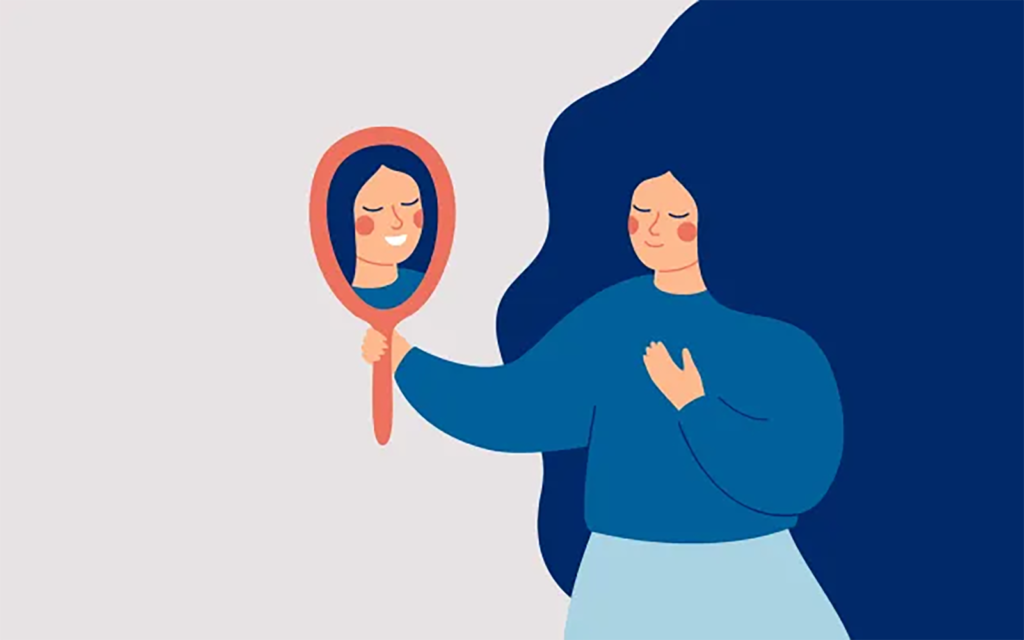
Respect Builds Emotional Intelligence and Social Awareness
Another long-term benefit of applying a meaningful Çocuklar İçin Saygı Tanımı is the development of emotional intelligence. When children are treated with respect, they naturally begin to:
- Name and process their emotions
- Recognize how their actions affect others
- Develop compassion and understanding for peers
Why? Because they are experiencing those same behaviors firsthand. When a teacher says, “I see you’re upset. Would you like some space or a hug?” they are modeling emotional literacy and choice. The child learns not just vocabulary—but also that emotions are valid and manageable.
Over time, this respectful modeling lays the groundwork for more sophisticated social behaviors like conflict resolution, cooperation, and leadership. These aren’t taught by lectures—they’re learned through daily interactions where children feel seen, heard, and respected.
Long-Term Impact: The Adult They Become
Let’s think forward 15 or 20 years. A child who has grown up in an environment where respect was practiced and not just preached, enters adulthood with a strong sense of self. They’re more likely to:
- Advocate for themselves in relationships and the workplace
- Navigate social dynamics with empathy and confidence
- Stand up for others’ rights
- Adapt to challenges without crumbling under pressure
In contrast, a person raised in a disrespectful environment may struggle with low self-esteem, people-pleasing, or aggression. These patterns often stem from unmet emotional needs during childhood, when they were not treated as full human beings.
This is why Respect Definition for Kids isn’t a soft value—it’s a structural investment in society’s future adults. We are either raising empowered individuals or future adults still healing from childhood wounds.

Respect Isn’t Earned—It’s Modeled
A common misconception is that children must earn respect by behaving well. But this is backwards. Children learn to behave well because they are respected first.
When we model respectful behavior consistently—speaking with courtesy, listening deeply, setting firm but fair boundaries—children absorb that standard and reflect it back. This also applies to discipline. A respectful tone when redirecting behavior leads to more internalized self-control than shouting or punishing ever could.
Respect Leaves a Legacy
Every interaction with a child leaves a trace. Over time, those traces build their inner world—their sense of identity, belief in relationships, and readiness to face the world. When children experience genuine respect early in life, it becomes part of who they are.
Respect is not something we “give” once. It’s something we live, moment to moment. And in doing so, we help our children become what the world needs: secure, kind, thoughtful human beings.

Receive a free catalog and custom layout to help you design your ideal classroom easily.
How can we teach kids about respect?
When we think about Respect Definition for Kids, the goal is not just to define the word “respect,” but to help children internalize its value in a way that influences their behavior, thoughts, and relationships. Respect, especially in early childhood, is something children learn by living it. It’s not a one-time lesson or a rule on the wall — it’s something embedded in daily conversations, emotional experiences, classroom routines, and family culture.
The real challenge is: How do we teach respect in an authentic and developmentally appropriate way? Below are six essential strategies—not just to teach respect but to embody it so that children grow up with a healthy, secure, and lasting understanding of what respect really means.
Talk about what respect means to you
Children are observant, but they are also still learning how to attach meaning to behaviors. One of the simplest yet most powerful things adults can do is verbalize what respect looks like in daily life. This starts with open dialogue. Ask children, “What does being respectful mean to you?” Then, share your own thoughts in language they understand.
Explain that respect means treating others how we want to be treated, listening without interrupting, being gentle with people and things, and showing kindness even when we don’t feel like it. Connect the idea of respect to real-life examples: not stepping on someone’s toys, saying “thank you,” or helping a sad friend.
This practice gives shape and substance to the Respect Definition for Kids. It helps children understand that respect isn’t just about obedience — it’s about seeing others as important and valuable.
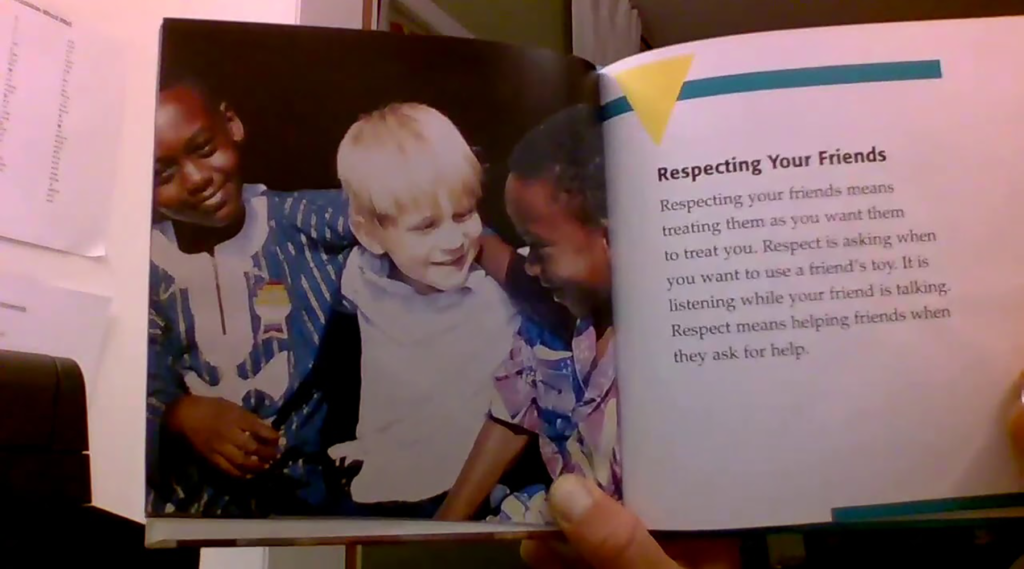
Model respect in everyday interactions
Children learn far more from what adults do than from what we say. If we want children to be respectful, we must model respect in every interaction, especially with them. This means:
- Speaking to children with the same tone and patience we use with adults.
- Apologizing when we make mistakes or act unfairly.
- Listening carefully when they speak, without rushing or dismissing their thoughts.
- Treating other adults — teachers, parents, strangers — with empathy and politeness in front of children.
These daily choices show children that respect is not conditional. It’s not something only powerful people get. It’s something everyone deserves, no matter their age or status.
When children see their parents and teachers practice respect consistently, they absorb it as normal behavior. This embodiment is the heart of a healthy Respect Definition for Kids — not theoretical, but visible and lived.
Demonstrate respect when communicating with kids
One often overlooked area is how adults communicate with children, especially when correcting or disciplining them. Respectful communication is not about letting kids “get away with things.” It’s about setting boundaries in a way that maintains dignity.
This can mean:
- Getting down to a child’s eye level before speaking.
- Use a calm, steady tone even when giving instructions or expressing disappointment.
- Avoiding shaming language like “What’s wrong with you?” or “You’re being bad.”
- Asking questions instead of demanding: “Can you tell me why that happened?” instead of “Why would you do that?!”
These small communication shifts preserve the child’s emotional safety, even during challenging moments. Children who feel respected when in trouble are more likely to reflect, take responsibility, and try again. They also grow up with a clear internal model of respectful relationships.

Use books and media to learn about respect
Books, movies, and shows can be powerful tools for helping children understand respect. Well-chosen stories allow children to see respect — and disrespect — play out in different scenarios. They see characters handle conflicts, apologize, forgive, or learn important lessons through mistakes.
Select books that revolve around empathy, inclusion, fairness, or listening. Then take it one step further: discuss the story afterward. Ask open-ended questions like:
- “How do you think the character felt when they weren’t listened to?”
- “Was that a respectful way to solve the problem?”
- “Have you ever been in a situation like that?”
This approach gives depth to the Respect Definition for Kids, grounding abstract values in relatable contexts. Stories help children explore emotional experiences that may be beyond their reality but are still part of the human experience.
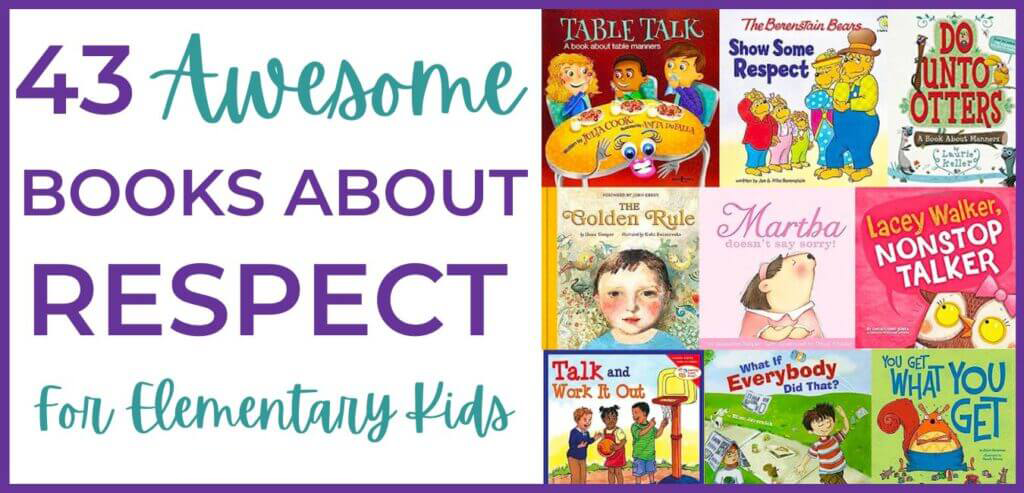
Talk about how to “push back” on disrespect
Respect is not just about being nice. It also involves knowing when and how to assert boundaries, especially when facing disrespect. Many adults overlook this aspect of respect teaching, and it’s especially crucial for children to learn in today’s social environments.
Teaching kids that it’s okay to say:
- “Please don’t talk to me like that.”
- “That hurts my feelings.”
- “I’d rather not play that game.”
These are not acts of defiance; they’re acts of self-respect. When children are encouraged to speak up, they understand that respect goes both ways. They learn that being respectful doesn’t mean staying silent when someone crosses a line.
This part of the Respect Definition for Kids builds confidence and resilience. It helps children navigate peer dynamics, bullying, and even complicated adult relationships later in life.
Explore what respect means in different cultures and contexts
Finally, teaching respect should never be limited to a single definition. Respect looks different across cultures, families, and communities. What’s respectful in one household (making eye contact) might be seen as rude in another.
Use this as an opportunity to explore diversity and cultural sensitivity with children. Show them that respect includes being curious and open-minded about others’ beliefs, traditions, and customs. Discuss holidays, greetings, and family roles in other cultures. Encourage questions like:
- “Why do some people take off their shoes indoors?”
- “Why do some children call adults by their first names?”
When children see that respect is not one-size-fits-all, they become more compassionate, flexible, and global-minded. This helps shape a mature, adaptable Respect Definition for Kids that can grow with them across cultures and communities.

Receive a free catalog and custom layout to help you design your ideal classroom easily.
Sıkça Sorulan Sorular:
1. Çocuklara saygı göstermek neden önemlidir?
Çocuklara saygı göstermek, onların duygusal ve psikolojik gelişimi için çok önemlidir. Öz saygılarını geliştirir, bağımsızlıklarını teşvik eder ve değerli ve duyulmuş hissetmelerine yardımcı olur. Çocuklara saygı göstererek, sağlıklı ilişkiler kurabilen ve dünyada empati ve saygıyla yol alabilen, kendine güvenen ve duygusal olarak dayanıklı bireyler olarak gelişmelerini sağlarız.
2. Günlük yaşamda çocuklara saygıyı nasıl gösterebiliriz?
Çocuklara günlük yaşamda saygı göstermek, onları aktif olarak dinleyerek, duygularını kabul ederek, fikirlerini onaylayarak ve bağımsızlıklarını teşvik ederek yapılabilir. Onlara seçenekler sunmak, kişisel alanlarına saygı göstermek ve kendilerini özgürce ifade etmelerine izin vermek gibi küçük eylemler, çocukların saygı duyulan ve değerli hissetmelerine katkıda bulunur.
3. Okulda çocuklara saygı nasıl olmalı?
Okuldaki çocuklara saygı, tüm öğrencilerin duyulduğunu ve değer verildiğini hissettiği kapsayıcı bir ortam yaratmak anlamına gelir. Farklı öğrenme stillerini tanımayı, kendini ifade etmeyi teşvik etmeyi, empati ve kapsayıcılığı desteklemeyi ve çocukların akademik ve sosyal olarak gelişmeleri için ihtiyaç duydukları desteği sağlamayı içerir. Saygılı bir okul ortamı, çocukların özgüven oluşturmasına ve akranları ve öğretmenleriyle olumlu ilişkiler geliştirmesine yardımcı olur.
4. Çocuklara saygı göstermek onların duygusal gelişimini nasıl etkiler?
Respecting kids positively impacts their emotional development by validating their feelings and fostering emotional resilience. When children feel respected, they learn to express their emotions healthily, build self-esteem, and confidently navigate challenges. It also encourages them to treat others with kindness and empathy.
5. Sınıfta çocuklara karşı saygının bazı örnekleri nelerdir?
Sınıfta çocuklara saygı göstermenin örnekleri arasında, onların fikirlerini aktif olarak dinlemek, katılımı teşvik etmek, bireysel öğrenme ihtiyaçlarını tanımak ve kendilerini ifade etmeleri için güvenli bir alan sağlamak yer alır. Ayrıca, akran etkileşimlerinde adaleti, kapsayıcılığı ve nezaketi teşvik etmek, onların duygusal ve sosyal refahlarına saygı gösterir.
Çözüm
Respecting kids is fundamental to their emotional, social, and academic growth. By acknowledging their feelings, valuing their individuality, and providing opportunities for autonomy, we help them develop self-esteem, confidence, and resilience. In the home, respecting kids means listening to them, validating their emotions, and empowering them to make decisions, fostering their independence and autonomy. In the school environment, respect entails creating an inclusive and supportive space where children feel valued, safe, and encouraged to express themselves. Both at home and in school, respect is crucial for nurturing well-rounded, empathetic individuals who can thrive in any environment. By respecting kids, we lay the foundation for them to grow into responsible, thoughtful, and emotionally intelligent adults.

